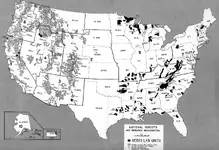prospexican
Full Member
- Joined
- Nov 28, 2013
- Messages
- 225
- Reaction score
- 49
- Golden Thread
- 0
- Location
- Nevada
- Detector(s) used
- Gemini-3 best expert.
gpx 5000, fisher 2 box, whites sierra madre, eagle ll w big foot, gold bug, GMT, MD-5008, Detectron 2 box. etc. metrotech 480, and ferromagnetic magnetometer FX-3. fisher CZ-20
- Primary Interest:
- All Treasure Hunting
well excuse my English, i know that it is not legal to prospect/ metal detect in a National Park, but i don't Know The difference between a national Forest and a national Park, I was Invited To Utah this coming weekend, feb/13/2015 ibeen getting lost of experience with different metal detectors, but specially with 2 box detectors, and others, a few days ago was my lucky day, i won a tesoro tejon on a raffle and bought a fisher CZ-20 for $ 250 locally, a sand scoop for $20 from the same guy lol. well we just got a TDI whit my partner and i love it, haven't take it to the field yet buy some testing we did we like the way it performs, any way please let me know if there is any legal problems to prospect with metal detectors in Utah National Forest, thanks in advance folks.
Last edited:
Upvote
0






